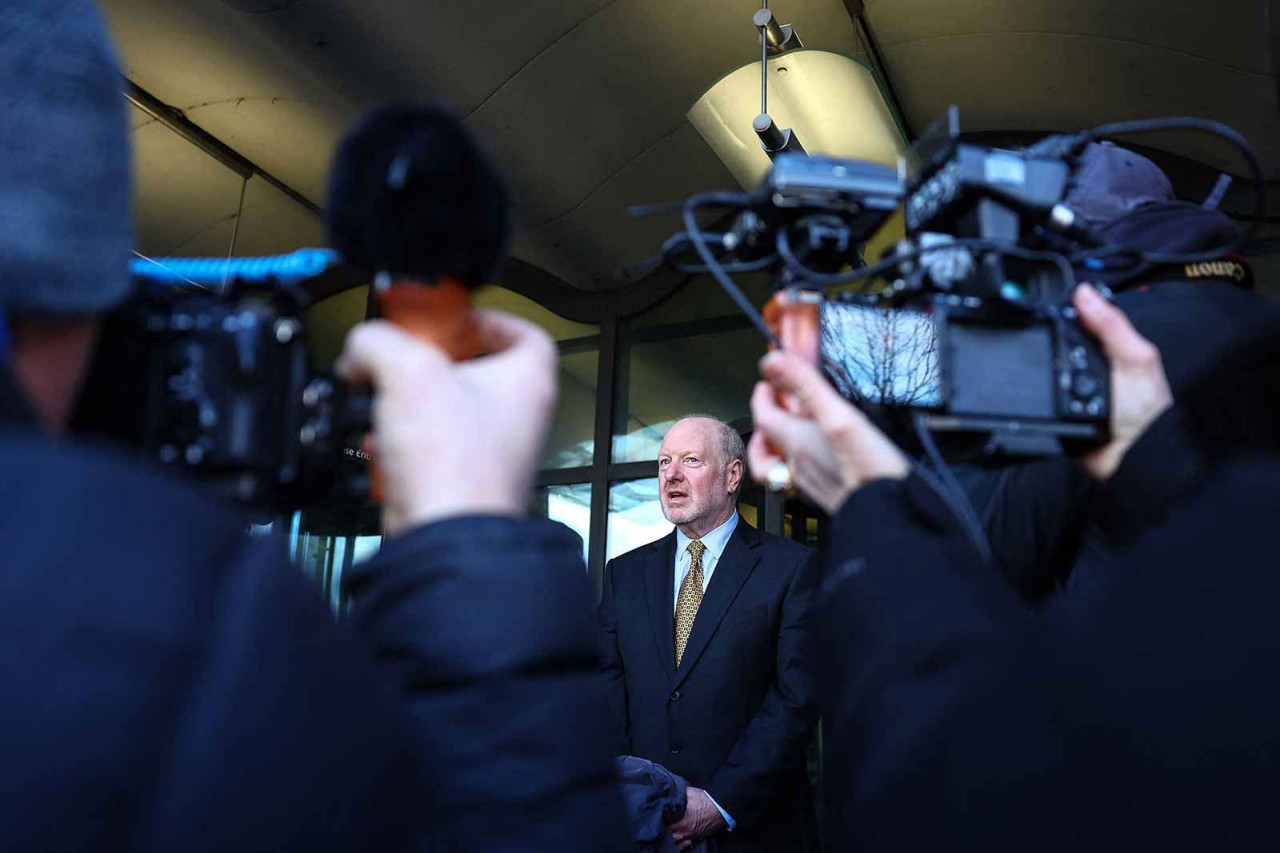
He liked the abject apology so much that he has now given it twice. When KPMG was hit last year by a whopping £21m fine, the biggest ever levied by the Financial Reporting Council, for its astonishing audit work on the accounts of Carillion (the biggest corporate failure ever dealt with by the Official Receiver, costing taxpayers in excess of £150m), poor old Jon Holt, head of KPMG, said: ‘It is clear to me that our audit work on Carillion was very bad, over an extended period.’
And now with the publication of the full detailed account from the executive counsel of the FRC published in early May, KPMG has released exactly the same apology. We don’t need to go into detail here. The great bursting of the balloon of wildly overoptimistic government contracts. Or the colourful comments quoted. Would the audit team end up looking like dicks, to quote KPMG auditor Peter Meehan in the report? Would a position paper that was more Mills & Boon than Shakespeare (also Meehan’s wording) save their bacon?
You couldn’t make up the auditors’ feeble behaviour or the company’s grandiose flim-flam
You probably couldn’t make it up – either the auditors’ feeble behaviour or the grandiose flim-flam of the company. Yet this sort of nonsense keeps on happening. The Sheffield University thinktank, the Audit Reform Lab, reckons that audit firms failed to wave a red-flag ahead of three-quarters of corporate collapses in the last 14 years.
Holt’s further comments are obviously from the heart. ‘In many areas, some of our former partners and employees simply didn’t do their job properly,’ he said. ‘Junior colleagues were badly let down by those who should have set them a clear example, and I am upset and angry that this happened at our firm.’
Blame the system
But Holt and all his colleagues were, frankly, done in by the system. If you were to create a system of tough and sceptical audit with a proper independent relationship from the company being audited and the freedom to publish what was a genuinely true and fair view, you wouldn’t in a million years set up the legal, financial and regulatory system we have.
Who in their right mind would have the auditors effectively beholden to the company being audited for the amount of their fee? Who in their right mind would allow that fee, hardly chickenfeed at £29m, to be effectively decided by the company’s directors? How can auditors be truly sceptical when the final published financial figures are arrived at through negotiations between them and the company’s executive directors, most of whose remuneration packages are dependent on those figures being as high as possible? And so on.
KPMG failed to adhere to the most fundamental audit concepts such as professional scepticism
Total Horlicks
Seen from afar, the system is ludicrous. Read the executive counsel’s reports. The two of them are lengthy and painstaking. And they are full of comments such as these, chosen virtually at random: ‘Audit procedures in a range of areas of the audit were not completed until more than six weeks after the date of the audit report but were nonetheless recorded on the final audit file as if they had been performed before that date.’ Or, more fundamentally: ‘It is clear that these records are not a reliable record either of the individual responsible for the review, or of whether a substantive review had been performed at all.’
Small wonder that the executive counsel concluded it was all about ‘failing to adhere to the most basic and fundamental audit concepts such as to act with professional scepticism and to obtain sufficient appropriate audit evidence’.
We should stop all this nonsense. We obviously need a serious review of the whole system and recommendations for making it properly independent. And I would propose, now that she has done us the monumental service of showing how none of it works, that Elizabeth Barrett, the executive counsel who wrote the reports, gives us the benefit of that experience and tells us in simple terms how it should work.




